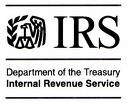08 juillet 2011
USA / Basic Trust Taxation Rules
 United States trust law is the body of law regulating the legal instrument for holding wealth known as a trust.
United States trust law is the body of law regulating the legal instrument for holding wealth known as a trust.
The United States trust law (source WIKI)
Estate Planning and Trust Law - US
Most law regulating the creation and administration of trusts in the United States is now statutory at the state level. In August 2004,
the National Conference of Commissioners on Uniform State Laws created the first attempt to codify generally accepted common law principles in Anglo-American law regarding trusts into a uniform statutory code for the fifty states, called the Uniform Trust Code(UTC).As of October 2009, 24 states have adopted some substantive form of the UTC with three others having introduced it into the legislature for adoption.[2] The goal of the uniform law is to standardize the law of trusts to a greater extent, given their increased use as a substitute for the "last will and testament" as the primary estate planning mechanism for the affluent (source WIKIPEDIA)
II. Basic Trust Taxation Rules Cliquer (source IRS)
US TAXNETWORK cliquer
To understand fully the trust schemes offered today, it is important to focus on some basic trust taxation rules.
A valid trust is a legal arrangement creating a separate legal entity.
The duties, powers and responsibilities of the parties to this arrangement are determined by state statute and the trust agreement.
To create a trust, legal title to property is conveyed to a trustee, who is then charged with the responsibility of using that property for the benefit of another person, called the beneficiary, who really has all the benefits of ownership, except for bare legal title. The IRS recognizes numerous types of legal trust arrangements, and they are commonly used for estate planning, charitable purposes and holding of assets for beneficiaries. The trustee manages the trust, holds legal title to trust assets, and exercises independent control.
All income a trust receives, whether from foreign or domestic sources, is taxable to the trust, to the beneficiary, or to the grantor of the trust unless specifically exempted by the Internal Revenue Code (IRC).
Foreign trusts to which a U.S. taxpayer has transferred property are treated as grantor trusts as long as the trust has at least one U.S. beneficiary. The income the trust earns is taxable to the grantor under the grantor trust rules. Grantor trusts are not recognized as separate taxable entities, because under the terms of the trust, the grantor retains one or more powers and remains the owner of the trust income. In such a case, the trust income is taxed to the grantor, whether or not the income is distributed to another party.
A legitimate trust is allowed to deduct distributions to beneficiaries from its taxable income, with a few modifications.
Therefore, trusts can eliminate income by making distributions to other trusts or other entities as long as they are named as beneficiaries. This distribution of income is key to understanding the nature of the abusive schemes. In the abusive schemes, bogus expenses are charged against trust income at each trust layer. After the deduction of these expenses, the remaining income is distributed to another trust, and the process is repeated. The result of the distributions and deductions is to reduce the amount of income
01:06 Publié dans aa TRUST ; REGIME FISCAL ET JURIDIQUE, Rapports, TRUST et Fiducie, USA et IRS | Tags : usa basic trust taxation rules | Lien permanent | Commentaires (0) |  Imprimer |
Imprimer |  |
| ![]() Facebook | | |
Facebook | | | 




Les commentaires sont fermés.